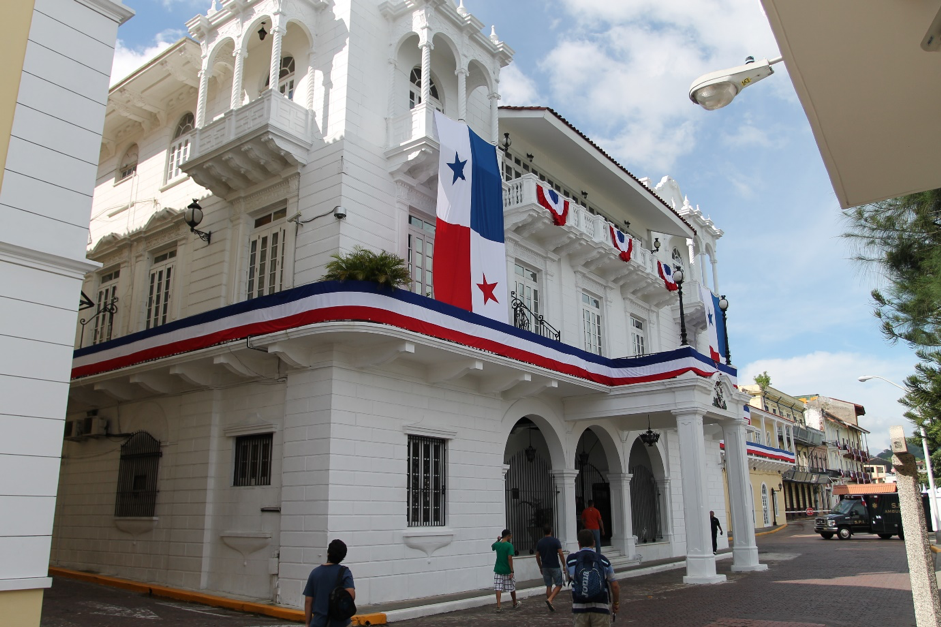
Panama will elect a new president along with 861 other public officials on May 5, 2019. Several key areas of reform, such as corruption and education, are characterizing the election, as well as citizen distrust and the need for increased civic participation.
The electoral process in Panama not only means the exercising of a right and civic duty, but also represents reform. It was through elections that the Panamanian people dismissed a dictatorship and paved the way for the democratic era in which they currently live. After 30 years of living in a democracy, the current situation requires the same — if not a higher — level of responsibility and commitment on the part of the Panamanian people to achieve the many reforms that the state demands of institutions following the multiple corruption scandals that the country has faced in recent years.
IRI has been a part of the delegation of electoral observers in three of the six elections Panama has had since its return to democracy (1989, 1994 and 2014). The first was characterized by government interference, human rights violations, restrictions on press freedoms and other actions perpetrated by the military regime that resisted leaving power. The second was characterized by great uncertainty prior to the elections but ended in satisfaction after seeing that the elections were free and fair, and that the winning military Democratic Revolution Party (PRD) had chosen to maintain the democratic. Finally, the 2014 elections made the need for reforms clear, and some were even addressed in the reforms to the Electoral Code adopted in 2017 — such as limits on private campaign donations and public campaign subsidies, the length of campaigns, and hiring campaign advertisers.
In the next elections, which will be held on Sunday, May 5, Panamanians will vote for no less than 861 elective offices — a president and vice president, 17 National Assembly deputies, 81 mayors, 20 Central American Parliament deputies, 679 town representatives and nine local councilmembers — as well as decide whether or not to reform the Constitution. All these important choices will take place in a context of citizen distrust towards the government and various overarching problems that the country is facing.
Young people in particular are a key population the electoral system must engage. According to the Electoral Tribunal, youth between 18 and 25 represent 566,414 votes and many of these youth will express their right to vote in the upcoming elections. That number translates to some 20 percent of voters according to the Preliminary Electoral Register. Youth are the most affected by corruption, social security and education problems, as they are the ones who will have to deal with these problems in the future. For this reason, they have taken an active part in civil society campaigns, and some have even run for office to effect reform from within government. Candidates, parties and government officials alike should continue to engage them in order to win over public trust and enact necessary reforms.
Likewise, women also make up a key group that is under-engaged in the electoral system. Although they total 50.2 percent of voters, women represent only 16.8 percent of candidates, while men comprise 83.2 percent of candidates. Despite an increase in women’s participation since the 2014 election, the need for more female candidates is quite clear.
There are large expectations for candidates and their teams to take on the country’s main problems in their proposals. For example, Panama currently lags in transparency within government institutions. Following the Panama Papers and Odebrecht scandals, as well as public cases involving the National Assembly and some members, citizen trust in the government is low. This is evidenced by Transparency International’s Corruption Perception Index, which still places the country at 37 — a ranking that remains seven points below the regional average. Voters are likely to express their demand for anti-corruption reforms on May 5.
Furthermore, Panama’s education system is challenged to meet the country’s employment needs. Insufficient curricula and resources underprepare the nation’s youth for employment, leaving 58 percent of companies without qualified candidates to fill job vacancies. As a result, the country’s Global Competitiveness Index (GCI) has fallen, and Panama is currently ranks 64th out of 140 countries according to the World Economic Forum (WEF). To meet world standards, Panamanian citizens should demand serious investment in public education.
Related to these problems, the campaign season has seen a healthy uptick in citizen interest and participation. Civil society has become engaged with campaigns such as “No to Reelection,” which seeks to block the reelection of politicians involved in corruption cases, and “The Challenge for Transparency 2019,” which encourages presidential candidates to include a minimum of transparency and anti-corruption commitments in their platforms. Others include projects like the “First Civic Electoral Manual of Panama” and the “Politician” platforms, which seek to educate citizens on National Assembly candidate profiles.
Regardless of the outcome of the May 5 vote, the elections are likely to reflect a growing demand for reforms, such as those to combat corruption and reform the education system, which currently puts the credibility of the country’s institutions and competitiveness of the future labor force at risk. It is only through increased citizen demand and dedicated candidates that Panama will be able to tackle these reforms in this election.
Top